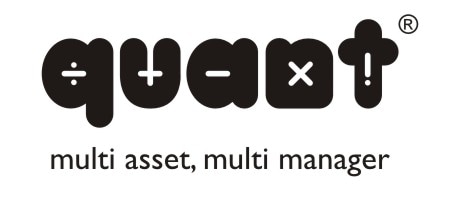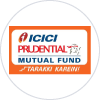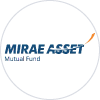Scheme type
AMC
Risk appetite
Rating
Returns

"Nippon India Multi Cap Fund-Growth Plan-Growth Option"
Min. investment
Rs. 100.0
5 Year Returns
23.06%

"Mahindra Manulife Multi Cap Fund - Regular Plan - Growth"
Min. investment
Rs. 500.0
5 Year Returns
20.03%

"ICICI Prudential Multicap Fund - Growth"
Min. investment
Rs. 100.0
5 Year Returns
18.08%

"Baroda BNP Paribas Multi Cap Fund - Regular Plan - Growth Option"
Min. investment
Rs. 250.0
5 Year Returns
17.26%

"Sundaram Multi Cap Fund (Formerly Known As Principal Multi Cap Growth Fund)-Growth Option"
Min. investment
Rs. 100.0
5 Year Returns
16.41%

"Quant Multi Cap Fund-Growth Option - Regular Plan"
Min. investment
Rs. 1000.0
5 Year Returns
16.15%

"Invesco India Multicap Fund - Growth Option"
Min. investment
Rs. 500.0
5 Year Returns
15.63%

"ITI Multi Cap Fund - Regular Plan - Growth Option"
Min. investment
Rs. 500.0
5 Year Returns
14.01%

"PGIM India Multi Cap Fund - Regular Plan - Growth Option"
Min. investment
Rs. 1000.0
5 Year Returns
.00%

"DSP Multicap Fund - Regular - Growth"
Min. investment
Rs. 100.0
5 Year Returns
.00%

"Edelweiss Nifty500 Multicap Momentum Quality 50 Index Fund - Regular - Growth"
Min. investment
Rs. 100.0
5 Year Returns
.00%

"Edelweiss Multi Cap Fund - Regular Plan - Growth"
Min. investment
Rs. 100.0
5 Year Returns
.00%







































Frequently Asked Questions
Is multi-cap fund good for the long term?
Independent of the market cycle, investing in a multi-cap fund enables you to access all market segments. The fund's large-cap segment offers stability at a relatively moderate risk. The small-cap element typically improves portfolio performance over the long-term, while the mid-cap offers a combination of growth and stability. For long-term investors looking to accumulate wealth and achieve their financial objectives with a potentially better risk-return trade off, multi-cap fund offers a strong case. These investors should have an optimal investing horizon of roughly five years to get a fair taste of the market.
Which is better mid-cap or multi-cap?
Multi-cap funds outperform large and mid-cap funds in terms of diversification by investing in more stocks. However, large and mid-cap funds can include higher-quality equities than their multi-cap equivalents, meaning that investors in the former will see better returns.
What is difference between mult-icap and flexi-cap fund?
While a flexi-cap fund is a form of equity fund that covers stocks from multiple sectors and market capitalisation, a multi-cap fund invests in diverse market-cap businesses that include large-cap, mid-cap, and small-cap stocks but they mostly invest in large-size stocks making it less hazardous.
Use the Bajaj Finance SIP calculator to get an approximate understanding of the kind of returns you might expect from these funds before making a decision.
Where do multi-cap mutual funds invest?
Multi-cap Funds are required to allocate at least 65% of their assets to stocks, adhering to regulatory guidelines. This allows fund managers the flexibility to create a diverse portfolio across various sectors and company sizes, with adjustments made based on market dynamics.
Are Multi-cap mutual funds high risk?
Multi Cap Mutual Funds, investing in equities, may exhibit short-term volatility, but their risk tends to decrease over the long term as market fluctuations stabilize.
Should I invest in multi-cap mutual funds?
Flexi Cap Funds, with a versatile investment approach, offer the advantage of selecting stocks from any sector, providing exposure to the market's best opportunities. Additionally, fund managers can adapt the portfolio mix to optimise returns based on prevailing market conditions. With these benefits and the inherent diversification, Flexi Cap Funds are a valuable addition to any investor's portfolio.
Which is better multi-cap and flexi-cap?
Flexi-cap funds offer more flexibility in choosing stocks, making them suitable for dynamic market conditions, while multi-cap funds diversify across market caps.
What kind of returns can I earn from multi-cap?
Multi-cap funds have the potential to offer attractive returns over the long term, depending on market conditions and the fund's performance.
How long should I stay invested in multi-cap mutual funds?
It is advisable to stay invested in multi-cap mutual funds for the long term to benefit from compounding and navigate market fluctuations effectively.
Why add multi-cap mutual funds to your portfolio?
Multi-cap funds provide diversification across market segments, enabling investors to benefit from various opportunities and mitigate risks in their portfolios.
How can I choose the best multi-cap mutual fund to invest in?
Investors should consider factors like fund performance, expense ratio, fund manager's track record, investment objective, and risk profile before selecting a multi-cap mutual fund.
Is there any lock-in period for multi-cap mutual funds?
No, multi-cap mutual funds typically do not have a lock-in period, offering investors flexibility in terms of liquidity.
What are the types of multi-cap mutual funds?
Multicap funds can be actively managed, passively managed (index funds), or thematic, focusing on specific sectors or themes.
How are multi-cap mutual funds taxed?
Long-term capital gains (holding period over 1 year) are taxed at 10% for gains exceeding Rs. 1 lakh annually, while short-term gains (holding period less than 1 year) are taxed at 15% as per current tax regulations.





